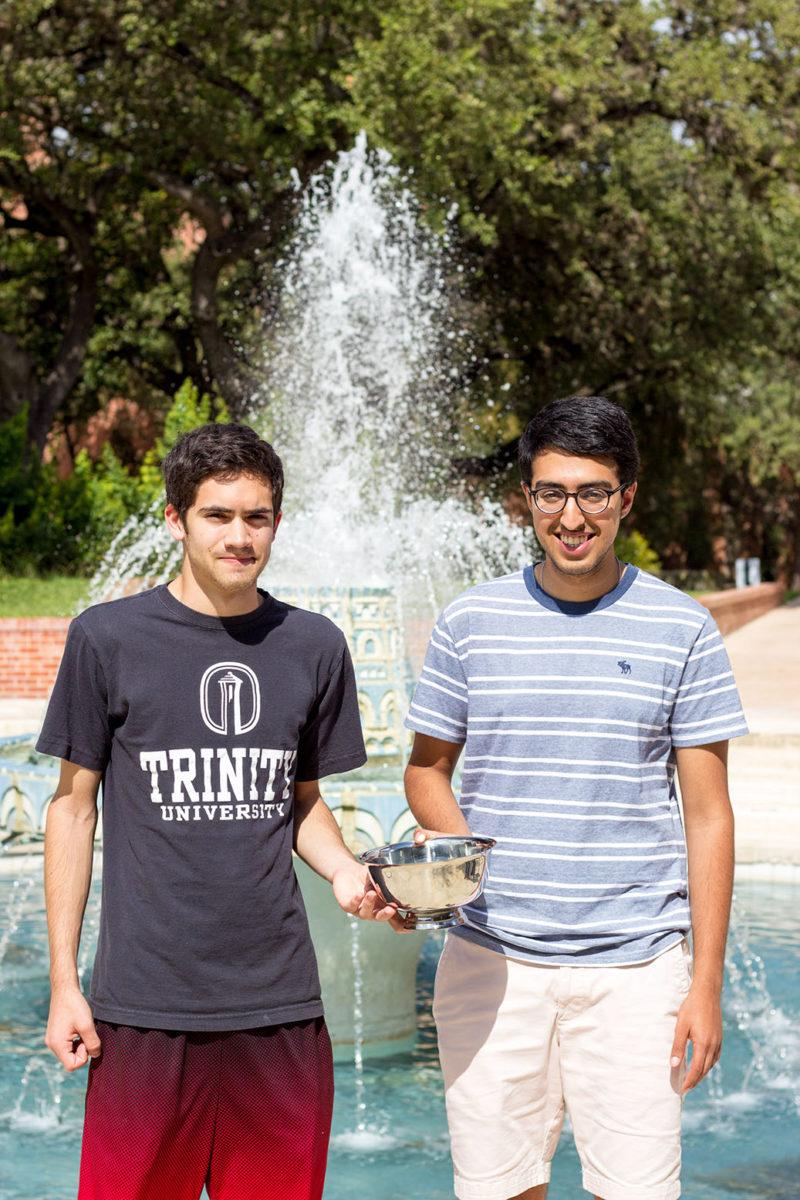Last weekend, Trinity’s policy debate team made its second showing in the elimination rounds of national tournaments this season. Of 133 entries, sophomores Ian Dill and Ansh Khullar nabbed the No. 22 ranking at the Franklin R. Shirley Classic held at Wake Forest University, held Nov. 11″“13.
Trinity participates in policy debate, a format that squares two teams of two against one another for matches that can exceed two hours in length. The team is stocked with up-and-coming competitors. This semester, the Tigers have faced powerhouse pairings from Harvard, Northwestern, Emory, Michigan State and the University of Texas at Austin. They boast a national ranking “” hovering around No. 20 “” a great improvement from their final ranking of No. 58 of last year.
Dill, a sophomore and an environmental studies and economics double major, has been debating with his partner Khullar, an economics and political science major, since their first year at Trinity.
“Our school has really shifted generationally, as the last wave of debaters who saw national tournament success graduated before [Khullar] and I arrived,” Dill wrote in an email interview. “This was good for us though, as Ansh and I came in getting a lot of dedicated coaching time. … Because of all that focus, we have made a lot of progress.”
The team has taken students to tournaments hosted by Georgia State University, the University of Kentucky and Gonzaga University in addition to the Wake Forest tournament. Collin Roark, one of the team’s two debate coaches, commented on the season thus far.
“It’s been an excellent season thus far. Our top team of Ansh Khullar and Ian Dill have consistently been ranked in the top 20 nationally, with wins over teams from prestigious schools such as Harvard and Dartmouth, which is quite rare for a sophomore-sophomore team,” Roark wrote in an email interview. “It’s been really great working with them along with our younger teams who continue to improve and rise through the ranks.”
Roark also addressed visions of a strong future for Trinity debate.
“We’ve been incredibly happy with the direction things are heading “” Trinity debate has become a place for students to engage on complex political issues,” Roark wrote. “I personally have a habit of getting into “˜Rocky mode’ and bringing some intensity towards the national competitions and hope we can continue to climb the national ranks.”
Dill echoed Roark’s ambition.
“While our goal was to be in the top 16, we have noticed that we are on track to be in the top 10, or perhaps top five by the end of next year. This is a lofty goal, but I think the progress we’ve made so far this year demonstrates that they are within our reach,” Dill wrote.
Due to the team’s smaller size, they receive comparatively less funding than the bigger schools that they face. Dill pointed out that while teams from bigger schools may receive more funding, Trinity’s debate team is in no way struggling to operate at its current size.
“The funding question for debate is super complicated, because it’s hard to compare to other on-campus organizations,” Dill wrote. “Emory has a budget four or five times bigger than ours. However, Emory also has several more coaches, flies many more debaters across the country to tournaments than we do, and offers seven or eight full-ride scholarships per year. We are not really short on money for our current travels and team size.”







